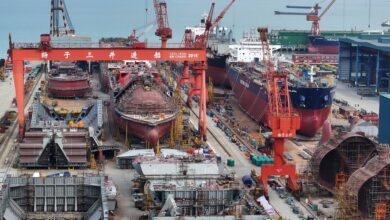
Hungary bets big on battery manufacturing to drive growth
With over 4% share of global battery production capacity, Hungary aims to surpass the US, under its ambitious electric mobility push led by PM Orban’s government. Foreign Minister Peter Szijjarto in Beijing remarked the country doesn’t seek global leadership but Chinese dominance at nearly 80% underlines opportunities.
Budapest has attracted Chinese, South Korean companies with incentives and infrastructure support. Chinese behemoth CATL’s €800mn Hungary investment clinched with 10% tax breaks validates this strategy.
Chinese President Xi Jinping’s visit to Hungary, among a few European stops, also reflects their burgeoning ties, with bilateral trade surging to €10.7bn in 2023 and air connectivity rising.
Debrecen has emerged as a key EV battery manufacturing hub with units like CATL, SemCorp, EcoPro, and Japanese newcomer Eve Energy clustering around. BMW’s upcoming electric car plant lies nearby.
A BYD gigafactory in southern Hungary is in the works as authorities clear over 300 hectares of land.
While environmental concerns simmer, officials project such investments as global examples. CATL calls the access to European markets a prime pull factor aided by regional backing.
However, critics argue the opacity around potential ecological impacts under Fidesz’s rule remains troubling. As Hungary competes as an auto export powerhouse, only time will tell if backing battery production delivers as planned.



